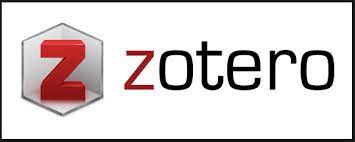TECHNOLOGY IMPLEMENTATION STRATEGIES IN EDUCATION: A LITERATURE ANALYSIS
Keywords:
Strategy, Technology Implementation, EducationAbstract
Effective strategies for technology implementation in education were found to require a multidimensional approach, involving the integration of adequate technology infrastructure, continuous training for teaching staff, and adaptation of the curriculum to suit technological developments. In addition, collaboration among stakeholders, including government, schools, technology providers and communities, was found to be a key factor in overcoming implementation challenges, such as inequality of access and resistance to change. Policies that are inclusive and orientated towards sustainable solutions are essential in ensuring that technology implementation can improve the quality of education effectively and thoroughly.
Downloads
References
Alexeev, A. (2022). Teaching modern methodology for quantitative policy analysis. Teaching Graduate Political Methodology, Query date: 2024-11-20 15:51:46, 300-308. https://doi.org/10.4337/9781800885288.00044
Amsaveni, R., & Punithavalli, M. (2024). Educational Augmented Reality Working Methodology, Opportunities, and Apps. Transformative Digital Technology for Disruptive Teaching and Learning, Query date: 2024-11-20 15:51:46, 165-177. https://doi.org/10.1201/9781032675176-15
Arikunto;, S. (2000). Research Management (Jakarta). Rineka Cipta.
//172.0.0.24%2Felibrary%2Findex.php%3Fp%3Dshow_detail%26id%3D2341%26keyw ords%3D
Badarov, D., & Mihov, G. (2020). Teaching Methodology for All Digital Phase Locked Loop. 2020 XI National Conference with International Participation (ELECTRONICA), Query date: 2024-11-20 15:51:46, 1-4.
https://doi.org/10.1109/electronica50406.2020.9305120
Benbunan-Fich, R., & Stoever, W. A. (2024). Using Information Technology to Promote Multi-Cultural Case Teaching: A Pedagogical Framework. Digital Technology in Teaching International Business, Query date: 2024-11-20 15:51:46, 13-27.
https://doi.org/10.1201/9781003573265-2
Brown, M., Nordyke, S., & Thies, C. (2022). Introduction to Teaching Undergraduate Political Methodology. Teaching Undergraduate Political Methodology, Query date: 2024-11-20 15:51:46, 1-6. https://doi.org/10.4337/9781800885479.00008
Fawait, A., Siyeh, W. F., & Aslan, A. (2024). ISLAMIC EDUCATION MANAGEMENT STRATEGIES IN IMPROVING THE QUALITY OF LEARNING IN MADRASAS.
Indonesian Journal of Education (INJOE), 4(2), 657~665-657~665.
Golding, P., & McNamarah, S. (2024). Sagicor's digital transformation maturity journey. Journal of Information Technology Teaching Cases, Query date: 2024-11-20 15:51:46. https://doi.org/10.1177/20438869241227564
Gray, A. (2020). Teaching and Learning via Technology: Digital Feedback. Journal of Teaching and Learning in Higher Education, 1(2). https://doi.org/10.24834/jotl.1.2.583
Gregory, R., Norledge, J., Stockwell, P., & Szudarski, P. (2021). Technology, techniques, teaching. Digital Teaching for Linguistics, Query date: 2024-11-20 15:51:46, 104-124. https://doi.org/10.4324/9781003199496-8
Guna, B. W. K., Yuwantiningrum, S. E., Firmansyah, S, M. D. A., & Aslan. (2024). Building Morality and Ethics Through Islamic Religious Education In Schools. IJGIE (International Journal of Graduate of Islamic Education), 5(1), 14-24. https://doi.org/10.37567/ijgie.v5i1.2685
Harmawati, Anugrawati, N., & Rum, E. P. (2022). THE EFFECTIVENESS OF USING DIGITAL STORYTELLING IN TEACHING SPEAKING AT SMA MUHAMMADIYAH 9
MAKASSAR. English Language Teaching Methodology, 2(1), 18-29. https://doi.org/10.56983/eltm.v2i1.40
Irwan, I., Arnadi, A., & Aslan, A. (2024). DEVELOPING CRITICAL THINKING SKILLS OF PRIMARY SCHOOL STUDENTS THROUGH INDEPENDENT CURRICULUM
LEARNING. Indonesian Journal of Education (INJOE), 4(3), 788~803-788~803.
Ishiyama, J. (2022). Teaching political methodology to undergraduate students.
Teaching Undergraduate Political Methodology, Query date: 2024-11-20 15:51:46, 35-
46. https://doi.org/10.4337/9781800885479.00013
Judijanto, L., Shodiqin, R., & Aslan. (2024). SOCIAL SOLIDARITY IN THE DIGITAL AGE:
CHALLENGES AND OPPORTUNITIES. Proceedings of the Indonesian National Seminar, 2(3), 357-368.
Juliani, J., & Aslan, A. (2024). THE BASICS OF CURRICULUM DEVELOPMENT: CURRICULUM FROM THE ASPECTS OF IMTAQ AND IPTEK. International Journal Of Humanities, Social Sciences And Business (INJOSS), 3(2), 299-309.
Kirakosian, K., & Gates, I. (2022). Following Warren K. Moorehead's Paper Trail. Digital Heritage and Archaeology in Practice, Query date: 2024-11-20 15:51:46, 15-38. https://doi.org/10.5744/florida/9780813069319.003.0002
Mariska, T., & Aslan, A. (2024). TECHNOLOGY-BASED CURRICULUM MODEL.
International Journal Of Humanities, Social Sciences And Business (INJOSS), 3(2), 322-332.
Nicolaou, C. (2022). The Secret Power of Digital Storytelling Methodology. Advances in Educational Technologies and Instructional Design, Query date: 2024-11-20 15:51:46, 235-246. https://doi.org/10.4018/978-1-6684-5394-0.ch013
Panteli, N. (2024). Leading digital transformation: Dilemmas of a chief digital and information officer. Journal of Information Technology Teaching Cases, Query date: 2024-11-20 15:51:46. https://doi.org/10.1177/20438869241248198
Sahar, J. (2008). A critique of qualitative research. Indonesian Nursing Journal, 12(3), 197-
203. https://doi.org/10.7454/jki.v12i3.222
Sartika, E., & Fransiska, F. W. (2024). UNDERSTANDING THE STUDENTS' ENGLISH LEARNING ACHIEVEMENT AND HOME ENVIRONMENT SUPPORTS DURING
SCHOOL CLOSURE TO RESPOND TO THE PANDEMIC AT PRIVATE MADRASAH
TSANAWIYAH AT-TAKWA SAMBAS. International Journal of Teaching and Learning, 2(4), 939-953.
Serman, L., & Nych, O. (2021). INTRODUCTION OF DIGITAL TECHNOLOGIES IN ENGLISH
LANGUAGE TEACHING METHODOLOGY. Educational Discourse: Collection of Scientific Papers, 30, 35-45. https://doi.org/10.33930/ed.2019.5007.30(1)-4
Shmyhol, M. F., & Yushkevych, Yu. S. (2022). PROBLEMS OF HUMANITARIAN EDUCATION IN THE DIGITAL AGE: ANTHROPOLOGICAL DIMENSION. Scientific
Knowledge: Methodology and Technology, 1, 36-42.
https://doi.org/10.24195/sk1561-1264/2022-1-6
Silva, P. J. D., & Voelzke, M. R. (2021). Tecnologia digital e instrumentos musicais como metodologia de ensino de ondas sonoras em física / Digital technology and musical instruments as methodology of teaching sound waves in physics. Brazilian Journal of Development, 7(9), 89593-89601.
https://doi.org/10.34117/bjdv7n9-224
Sitopu, J. W., Khairani, M., Roza, M., Judijanto, L., & Aslan, A. (2024). THE IMPORTANCE OF INTEGRATING MATHEMATICAL LITERACY IN THE PRIMARY EDUCATION
CURRICULUM: A LITERATURE REVIEW. International Journal of Teaching and Learning, 2(1), 121-134.
Sivakumar, A. (2024). Gamification for Teaching Beyond for Creative Learners. Transformative Digital Technology for Disruptive Teaching and Learning, Query date: 2024-11-20 15:51:46, 101-112. https://doi.org/10.1201/9781032675176-9
Syahran, M. (2020). Building Data Trust in Qualitative Research. PRIMARY EDUCATION JOURNAL (PEJ), 4(2), 19-23. https://doi.org/10.30631/pej.v4i2.72
Syakhrani, A. W., & Aslan, A. (2024). THE IMPACT OF INFORMAL FAMILY EDUCATION
ON CHILDREN'S SOCIAL AND EMOTIONAL SKILLS. Indonesian Journal of Education (INJOE), 4(2), 619~631-619~631.
Weinandt, M. (2022). Teaching political methodology. Teaching Undergraduate Political Methodology, Query date: 2024-11-20 15:51:46, 47-54.
https://doi.org/10.4337/9781800885479.00014
Widjaja, G., & Aslan, A. (2022). Blended Learning Method in the View of Learning and Teaching Strategy in Geography Study Programs in Higher Education. Nazhruna: Journal of Islamic Education, 5(1), 22-36. https://doi.org/10.31538/nzh.v5i1.1852








